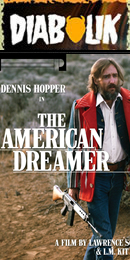
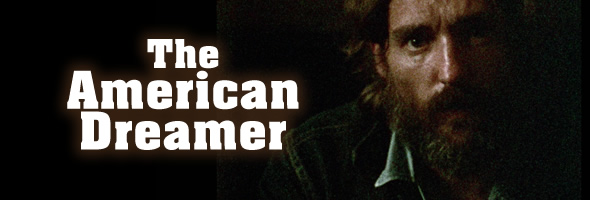
Color, 1971, 81m.
Directed by Lawrence Schiller & L.M. Kit Carson
Starring Dennis Hopper
Etiquette Pictures (Blu-ray & DVD) (US R0 HD/NTSC)


Color, 1971, 81m.
Directed by Lawrence Schiller & L.M. Kit Carson
Starring Dennis Hopper
Etiquette Pictures (Blu-ray & DVD) (US R0 HD/NTSC)
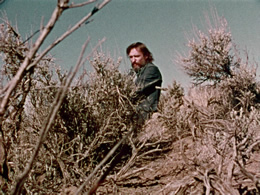
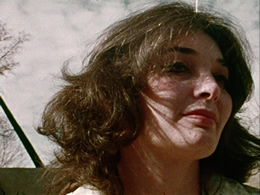 The fallout at major studios after the release of the 1969 counterculture blockbuster Easy Rider has now become legendary, and it's both logical and baffling that one of the big players, Universal, would want to offer a carte blanche project to that film's director and co-star, Dennis Hopper, who had been toiled as a character at TV actor in Hollywood for years. Handed a one million dollar budget, he mounted a production called The Last Movie, a very uncommercial but fascinating look at a film production in Peru that goes awry in more ways than one. The process of making Easy Rider involved whittling down endless hours of seemingly random footage, and this project would turn out to be the same case magnified tenfold as Hopper took over a year to deliver a finished cut, which was begrudgingly shown in a handful of theaters when Hopper stuck to his right of final cut.
The fallout at major studios after the release of the 1969 counterculture blockbuster Easy Rider has now become legendary, and it's both logical and baffling that one of the big players, Universal, would want to offer a carte blanche project to that film's director and co-star, Dennis Hopper, who had been toiled as a character at TV actor in Hollywood for years. Handed a one million dollar budget, he mounted a production called The Last Movie, a very uncommercial but fascinating look at a film production in Peru that goes awry in more ways than one. The process of making Easy Rider involved whittling down endless hours of seemingly random footage, and this project would turn out to be the same case magnified tenfold as Hopper took over a year to deliver a finished cut, which was begrudgingly shown in a handful of theaters when Hopper stuck to his right of final cut. 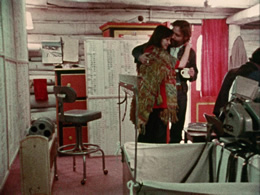 screenings for the past few decades, and it's best to keep its history in mind when watching the 2K restoration that provides the source here. The film was shot in 16mm, with
screenings for the past few decades, and it's best to keep its history in mind when watching the 2K restoration that provides the source here. The film was shot in 16mm, with 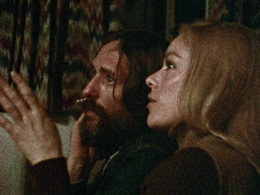 prints in that same format sent out for the non-commercial screenings in 1971. Unfortunately the negative no longer survives, and so a restoration was undertaken to restore the original color and as much clarity as possible to the four prints that still remain. The results here have a gritty but satisfying cinematic look, with lots of grain and deep blacks; in short, it looks exactly like an early '70s indie doc, and that's just fine. The DTS-HD MA mono English audio sounds fine as well, doing a good of handling the humorous, folksy soundtrack (which was even issued as a soundtrack LP).
prints in that same format sent out for the non-commercial screenings in 1971. Unfortunately the negative no longer survives, and so a restoration was undertaken to restore the original color and as much clarity as possible to the four prints that still remain. The results here have a gritty but satisfying cinematic look, with lots of grain and deep blacks; in short, it looks exactly like an early '70s indie doc, and that's just fine. The DTS-HD MA mono English audio sounds fine as well, doing a good of handling the humorous, folksy soundtrack (which was even issued as a soundtrack LP). ![]()